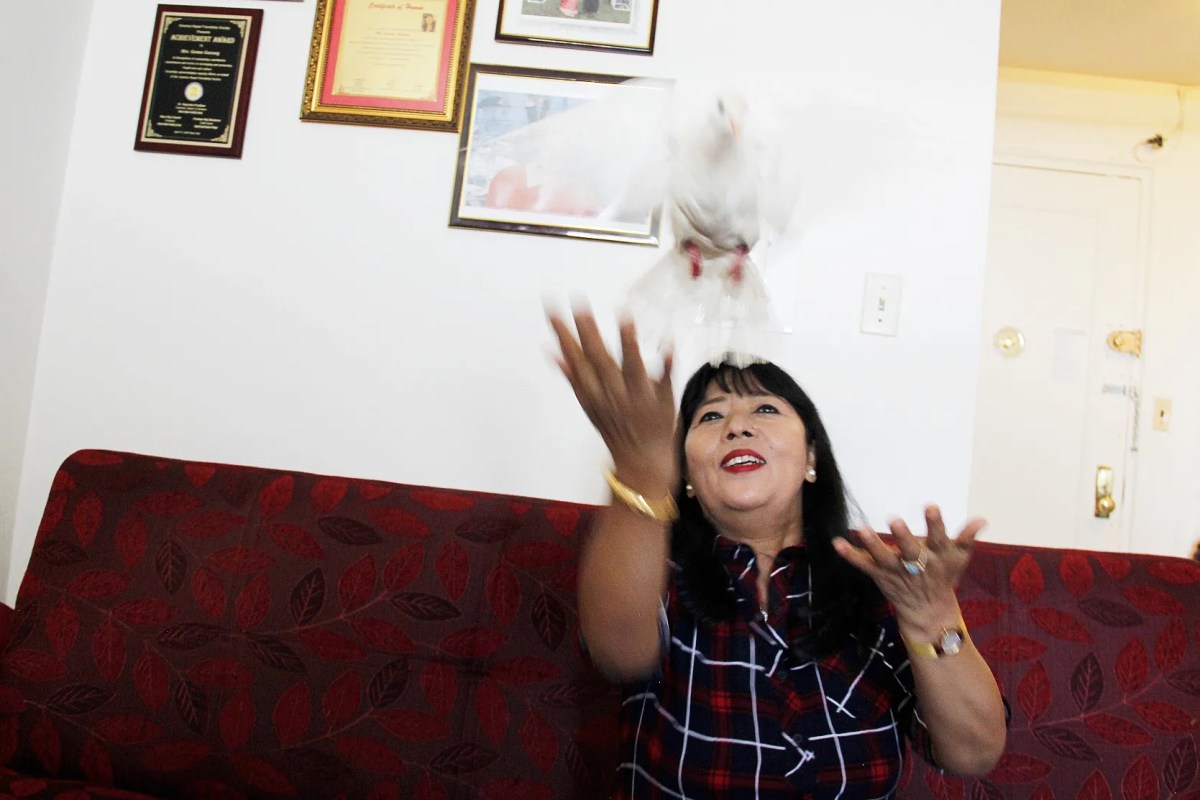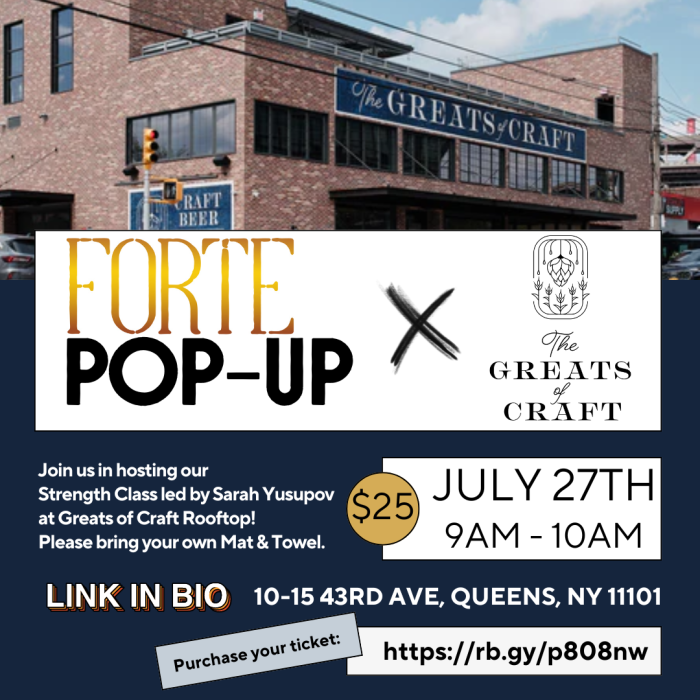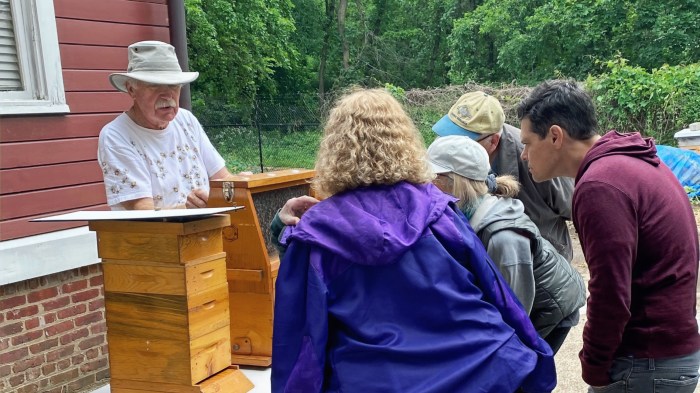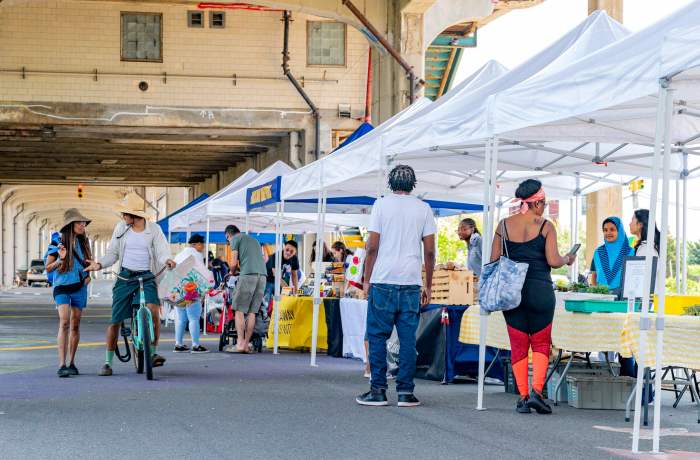This piece originally appeared on THE CITY, and is published in partnership with Documented and The Fuller Project.
During the first few months of the pandemic, the normally vibrant and noisy end of Woodside, Queens, was blanketed by ominous silence. Gone were the squeals of kids pouring out of Taekwondo class, the screech of sneakers on the Frank D. O’Connor playground, and the bhajans ringing out from the Satya Narayan Mandi Hindu temple.
Instead, sirens blared through the neighborhood, as ambulances shuttled patients sick with COVID-19 to Elmhurst Hospital.
By June 2021, the neighborhood called the “epicenter” of the pandemic seemed as if it was finally waking up, though the inequalities the crisis had exacerbated remained stark.
A Center for Migration Studies paper found that immigrants in areas such as Jackson Heights in Queens or Sunset Park in Brooklyn were most at risk for poor health outcomes due to a mix of factors. Among them: overcrowded housing conditions, limited English proficiency, barriers to health care and lower levels of education.
At least half of New York’s immigrant residents lack health insurance, with the disparities much starker for noncitizens compared to naturalized citizens. COVID-19 mortality rates, too, were higher in Black, Asian, and Hispanic neighborhoods across the City, which included foreign-born residents, a separate analysis found.
By September, 67 percent of all Queens residents had been vaccinated, according to New York City’s Citywide Immunization Registry. But in immigrant-rich neighborhoods around Elmhurst, residents continued to wear masks even when they went outside.
Goma Yonjan, a nail salon worker and Woodside resident, explained why she preferred to keep her mask handy despite being vaccinated. “Still, something inside worries,” she said.
In Yonjan’s 15-plus years in New York, she had come a long way from the uncertain newlywed she was when she first arrived from Nepal, when she would cry when teased about her lack of English skills and settled for $30 for an entire day of salon work.
Now, she is something of a “social butterfly,” said Prarthana Gurung, a campaigns and communications manager at Adhikaar, an organization that serves the local Nepali-speaking community.
Over the years, Yonjan has organized her fellow salon workers to demand better treatment and fairer wages. She has also come to chair several cultural and ethnic committees in the area, and even made remarks at City Hall in 2013 about her experience as a nail salon worker in a bid for better working conditions.
But when the pandemic started, Yonjan’s activism and social life came to an abrupt halt. The nail salon she worked at for 17 years closed up shop. She stopped leaving her home, and fear, uncertainty, and isolation chipped away at her mental health.
“Oh my God, [it] felt like depression,” she said.
Then, deaths in the community started mounting: The passing of Anil Subba, a Nepali Uber driver whose wife was also a salon worker, was one of the first fatalities Yonjan found out about through Facebook.
A year later, even as things improved in the rest of the city, Yonjan felt an aftershock of trauma as Delta variant of the virus ripped through Nepal, infecting her sister and nephew there. Now that the Delta had arrived in the United States, fear resurfaced in the neighborhood.
“For us, the impact of this is something we’ll be looking at for years to come,” Gurung said. “There’s definitely irreversible effects on our community.”
To cope, Yonjan, 57, adapted the ways in which she carried out her activism: She helped organize food donation drives, raised funds to buy protective gear for members of her community, and kept organizing nail salon workers — over Zoom. “If anything, the pandemic just strengthened my resolve and dedication, and it reminded me why I do this work,” she said.
In July, Yonjan led a march from her neighborhood to Manhattan Bridge, singing songs into a loudspeaker, and demanding a path for citizenship Temporary Protected Status holders like her — immigrants from certain designated countries, including Nepal, who fled natural disaster or conflict. Adhikaar is now pushing for the Senate Democrats to override objections by the Senate parliamentarian and include a pathway to citizenship for immigrant groups with temporary protections in a sweeping spending legislation currently being hammered out in Congress.
It was on brand for Yonjan, who is known in her community for her beautiful voice, to turn to her music and activism to cope with ongoing grief and loss.
“I try to motivate myself,” she said. “Life goes on, whatever happens, we have to survive.”
For more stories of New York women fighting for their communities during the pandemic, take a look through ‘We Have to Survive’: Meet NYC Immigrant Women Fighting for Their Communities During the Pandemic.































